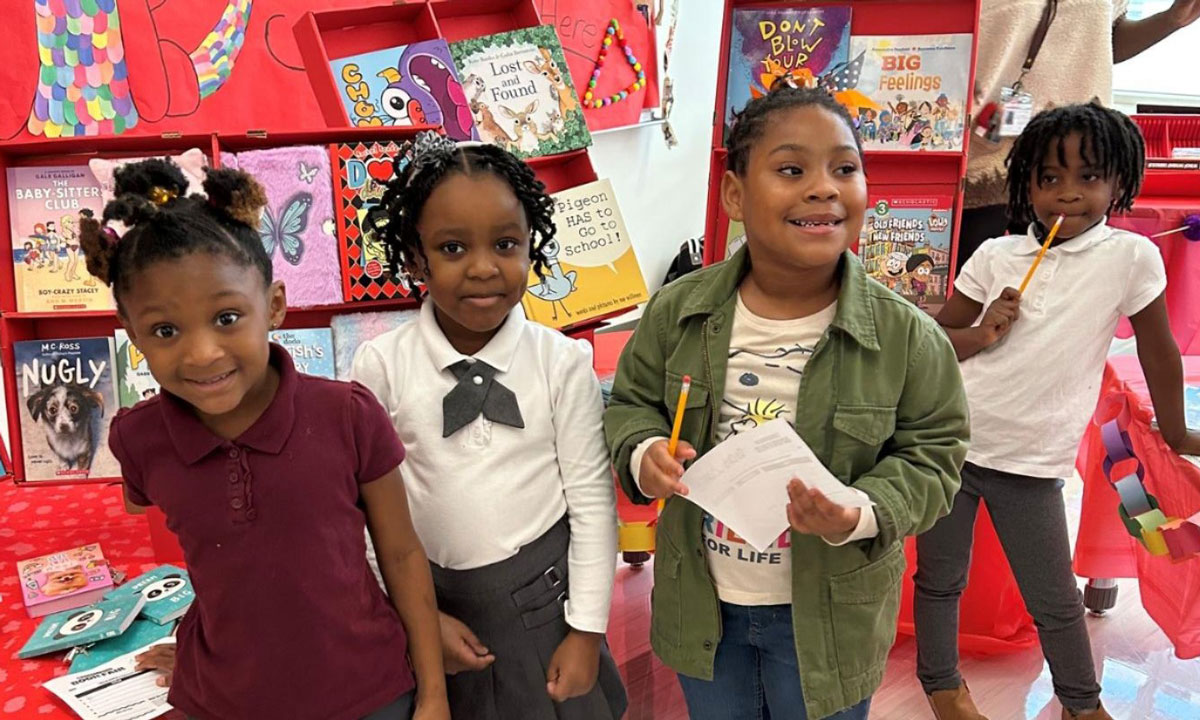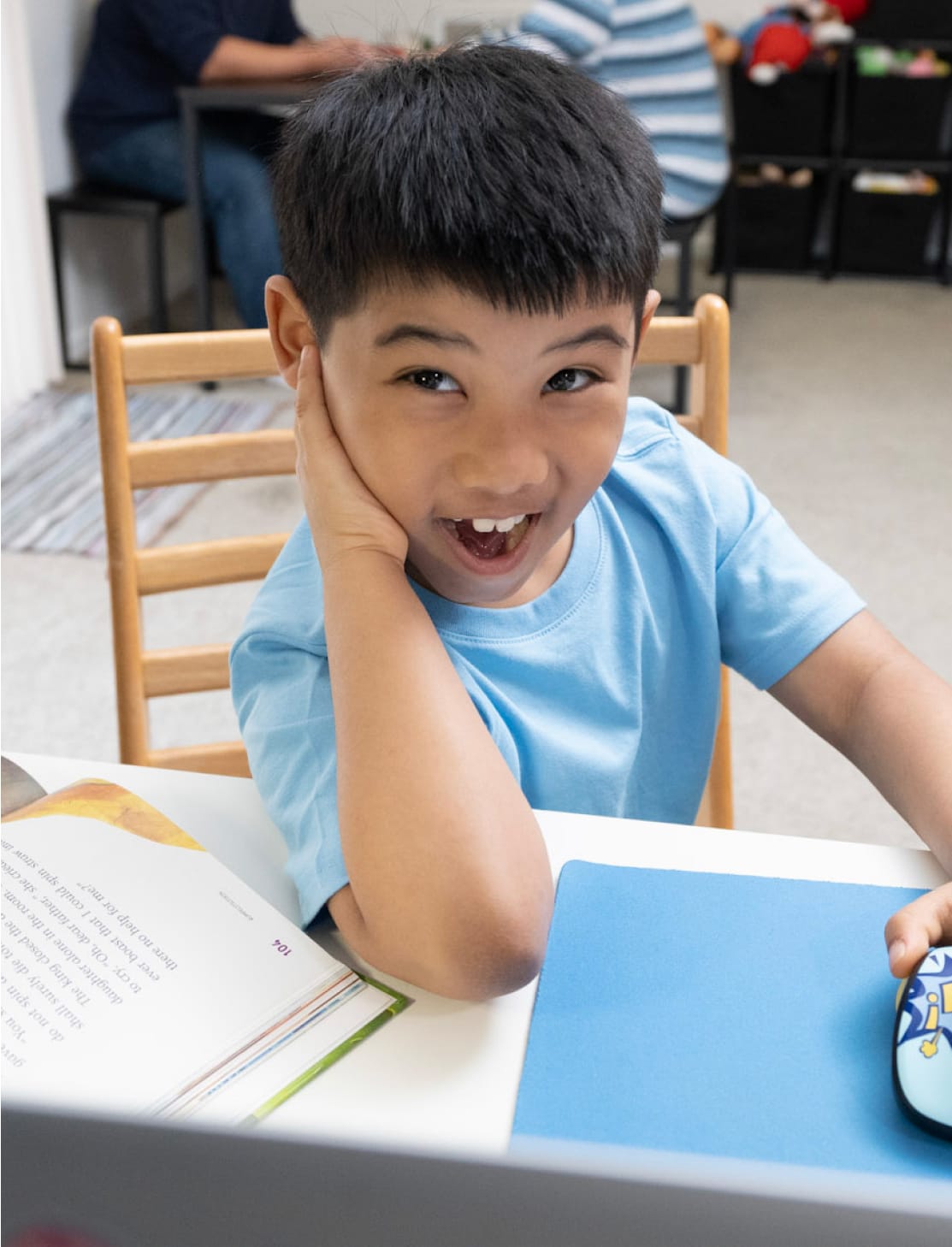Exploring the link between Kindergarten and future success
Wiki Article
Creative Learning Activities in Preschool: Enhancing Skills With Play and Interaction
Imaginative knowing tasks in kindergarten work as foundational experiences for young students (Grade School Peoria). These tasks motivate skill development via lively interaction and social interaction. Youngsters discover their creative thinking, enhance interaction, and find out beneficial social abilities. Each experience adds to their development in one-of-a-kind ways. Comprehending exactly how these tasks form early development reveals the extensive influence of play in education and learning. What specific components make these experiences so efficient in nurturing well-shaped people?The Function of Play in Early Childhood Development
While many may underestimate the relevance of play, it acts as an essential part of early childhood growth. Via play, children discover their atmospheres, foster social skills, and create cognitive capacities. Taking part in unstructured tasks enables them to use their imagination, explore analytic, and enhance their critical reasoning skills. Play offers a risk-free room for psychological expression, enabling children to navigate their feelings and build strength.In addition, play urges physical advancement as youngsters engage in tasks that enhance their motor skills and sychronisation. Communication with peers during playtime promotes teamwork and communication, preparing for future relationships. Grade School. Educators and parents identify that play is not just an activity but a vital facet of learning, forming a child's capability to grow and adapt in various circumstances. Eventually, play enriches kids's lives, preparing them for the difficulties of the future while promoting a lifelong love for understanding
Creative Arts and Crafts: Triggering Creativity
Imaginative arts and crafts play a considerable duty in sparking children's creative imaginations and improving their imaginative skills. These activities urge self-expression with numerous mediums, such as paint, attracting, and sculpting. By taking part in hands-on projects, youngsters discover to control materials, cultivating great electric motor abilities and hand-eye control.Creative arts offer a system for vital and problem-solving reasoning, as youngsters explore different strategies and techniques to their creations. This expedition enables them to experiment, make choices, and find out from their experiences.
Partnership is one more crucial element, as youngsters frequently interact on team jobs, sharing ideas and resources. This interaction not just constructs social abilities however also supports a feeling of area. Eventually, imaginative arts and crafts work as necessary devices in a preschool setup, advertising cognitive, emotional, and social development while triggering the innate interest and imagination of young students.
Interactive Storytelling: Structure Language Abilities
Interactive storytelling offers as a powerful tool for developing language skills in young kids, as it involves them in the narrative process and urges energetic participation. With storytelling sessions, youngsters are invited to listen, respond, and even add to the unraveling tale. This interactive format nurtures vocabulary development by exposing them to new words in context.As they take part, kids practice vital interaction skills, such as articulation and expression. They find see post out to series events, determine characters, and understand the story, promoting important reasoning. Additionally, interactive narration often includes aesthetic help, audio impacts, and props, which additionally improve engagement and understanding.
Additionally, when children share their very own tales, they experience a sense of agency and creativity, enhancing their language abilities in an encouraging setting. Ultimately, interactive narration grows a love for language and literary works, setting a strong structure for their future scholastic success.
Hands-On Science Experiments: Motivating Query
Hands-on science experiments supply young learners with important opportunities to explore and ask about the world around them. Participating in simple, interactive experiments enables kindergarteners to ask inquiries, make forecasts, and observe outcomes firsthand. These activities stimulate interest and foster a feeling of wonder, motivating kids to explore the buildings of materials, responses, and natural sensations.Experiments such as planting seeds or blending baking soft drink and vinegar not just illustrate scientific principles but also enhance critical assuming abilities. Youngsters find out to record their monitorings, advertising proficiency and numeracy as they measure, compare, and document information. Furthermore, hands-on science fosters a growth mindset, mentor strength as they navigate obstacles and learn from mistakes.

Collaborative Gamings: Cultivating Synergy and Social Skills
Taking part in collective games provides kindergarteners an unique platform to create teamwork and social skills while improving the inquiry-based discovering promoted by hands-on science experiments (Grade School Peoria). These games urge kids to collaborate toward typical objectives, promoting communication and cooperation. As they navigate various difficulties, they find out to share responsibilities, discuss functions, and fix problems-- important elements of reliable synergyVia organized activities such as group challenges, relay races, or cooperative narration, children not just boost their social interactions yet likewise strengthen you can find out more their psychological intelligence. They get understandings right into compassion and support, discovering that each youngster's contribution is valuable. Additionally, these joint experiences promote a feeling of neighborhood within the class, developing bonds that expand beyond specific play. By incorporating collective games into the curriculum, instructors can prepare for important life abilities that will certainly benefit children in their future educational and social environments.
Frequently Asked Questions
How Can Parents Assistance Creative Understanding in your home?
Parents can sustain innovative learning at home by giving varied materials, motivating expedition, engaging in imaginative play, asking open-ended questions, and promoting a risk-free environment where youngsters do not hesitate to share their concepts and imagination.
What Products Are Ideal for Arts and Crafts Activities?
A range of materials improve crafts and arts activities, consisting of construction paper, scissors, adhesive, why not find out more markers, paints, and recycled products. These sources motivate creative thinking and enable kids to explore their creativity through hands-on experiences.Just How Do Teachers Evaluate Children's Imagination?
Educators evaluate kids's imagination through observations, portfolios of work, and flexible jobs that encourage self-expression. They examine problem-solving abilities, originality, and willingness to experiment, giving insights into each youngster's unique innovative growth and abilities.What Are Some Instances of Outdoor Creative Activities?

Exactly How Can Social Motifs Be Integrated Into Creative Knowing?
Social styles can be incorporated right into creative discovering by including varied tales, songs, art, and traditions, motivating kids to explore and celebrate different backgrounds, cultivating inclusivity and understanding while enhancing their creative thinking and cognitive skills.Youngsters discover their creative thinking, boost communication, and discover useful social skills. With play, kids discover their environments, foster social skills, and develop cognitive capabilities. Additionally, play urges physical advancement as youngsters involve in tasks that boost their electric motor skills and coordination. Imaginative arts and crafts play a significant duty in stiring up kids's creativities and enhancing their innovative skills. Interactive storytelling offers as an effective tool for developing language skills in young children, as it involves them in the narrative procedure and encourages active engagement.
Report this wiki page